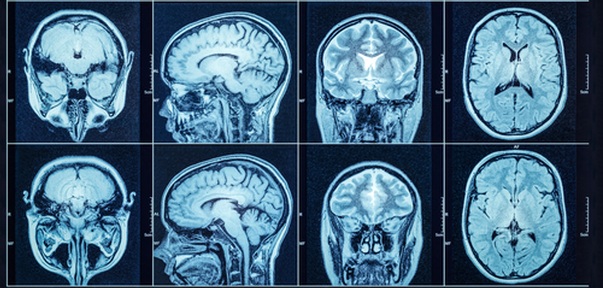Mild Covid can shrink the brain causing cognitive decline, Oxford study reveals
The brains of people infected mildly with Covid-19 have shrunk and suffered a loss in grey matter linked to smell and taste, a study by University of Oxford reveals.

Academics examined the brain scans of 785 people, aged 51-81, who had received MRI scans before and after Covid infection and found brain shrinkage and an overall decline in cognitive function which affected study participants' ability to perform complex tasks.
The researchers looked at changes to the brain on average 4.5 months after mild Covid infection and published their findings in the journal Nature. Scientists have said they do not know if the cognitive decline on the brain caused by Covid can be reversed.
'Greater loss of grey matter' despite mild infection
Professor Gwenaëlle Douaud, lead author on the study, at the Wellcome Centre for Integrative Neuroimaging at the University of Oxford, said: “Despite the infection being mild for 96% of our participants, we saw a greater loss of grey matter volume, and greater tissue damage in the infected participants, on average 4.5 months after infection.
“They also showed greater decline in their mental abilities to perform complex tasks, and this mental worsening was partly related to these brain abnormalities.
“All these negative effects were more marked at older ages. A key question for future brain imaging studies is to see if this brain tissue damage resolves over the longer term.”
A total of 401 people tested positive for Covid-19 infection between their two scans. The remaining 384 people, who did not get infected, were similar to the infected group in age, sex, and many risk factors such as obesity and economic status.
'Hallmarks of the degenerative spread of Covid'
Professor Stephen Smith, senior author on the study, (also from the Wellcome Centre for Integrative Neuroimaging) said: "Another strength of this study is that it investigated the same people at two different times.
“Importantly here, the first scan of UK Biobank participants was obtained before they became infected with SARS-CoV-2, and the second scan after infection. The fact that we have the pre-infection scan helps us distinguish brain changes related to the infection from differences that may have pre-existed in their brains."
Professor Naomi Allen, chief scientist at UK Biobank, said: "The UK Biobank COVID-19 Repeat Imaging study is the only study in the world to be able to demonstrate “before vs after” changes in the brain associated with SARS-CoV-2 infection.
“These findings may be the hallmarks of the degenerative spread of COVID-19, either via pathways related to the sense of smell, inflammation or immune response of the nervous system, or a lack of sensory input owing to a loss of smell. The future vulnerability of the brain regions affected in these participants requires further investigation.”
The paper ‘SARS-CoV-2 is associated with changes in brain structure in UK Biobank’ by Douaud et al. can be read in the journal Nature.
Latest News
 29-Jul-24
Dementia Bus gives carehome.co.uk staff insight into life with dementia
29-Jul-24
Dementia Bus gives carehome.co.uk staff insight into life with dementia
 27-Jul-23
UK's top home care agencies in 2023 revealed
27-Jul-23
UK's top home care agencies in 2023 revealed
 30-Nov-22
A quarter of older people keep their falls secret from family
30-Nov-22
A quarter of older people keep their falls secret from family
 29-Nov-22
'Covid-19 has not gone away' say terminally ill
29-Nov-22
'Covid-19 has not gone away' say terminally ill
 28-Nov-22
IT consultant who received poor care opens 'compassionate' home care business
28-Nov-22
IT consultant who received poor care opens 'compassionate' home care business